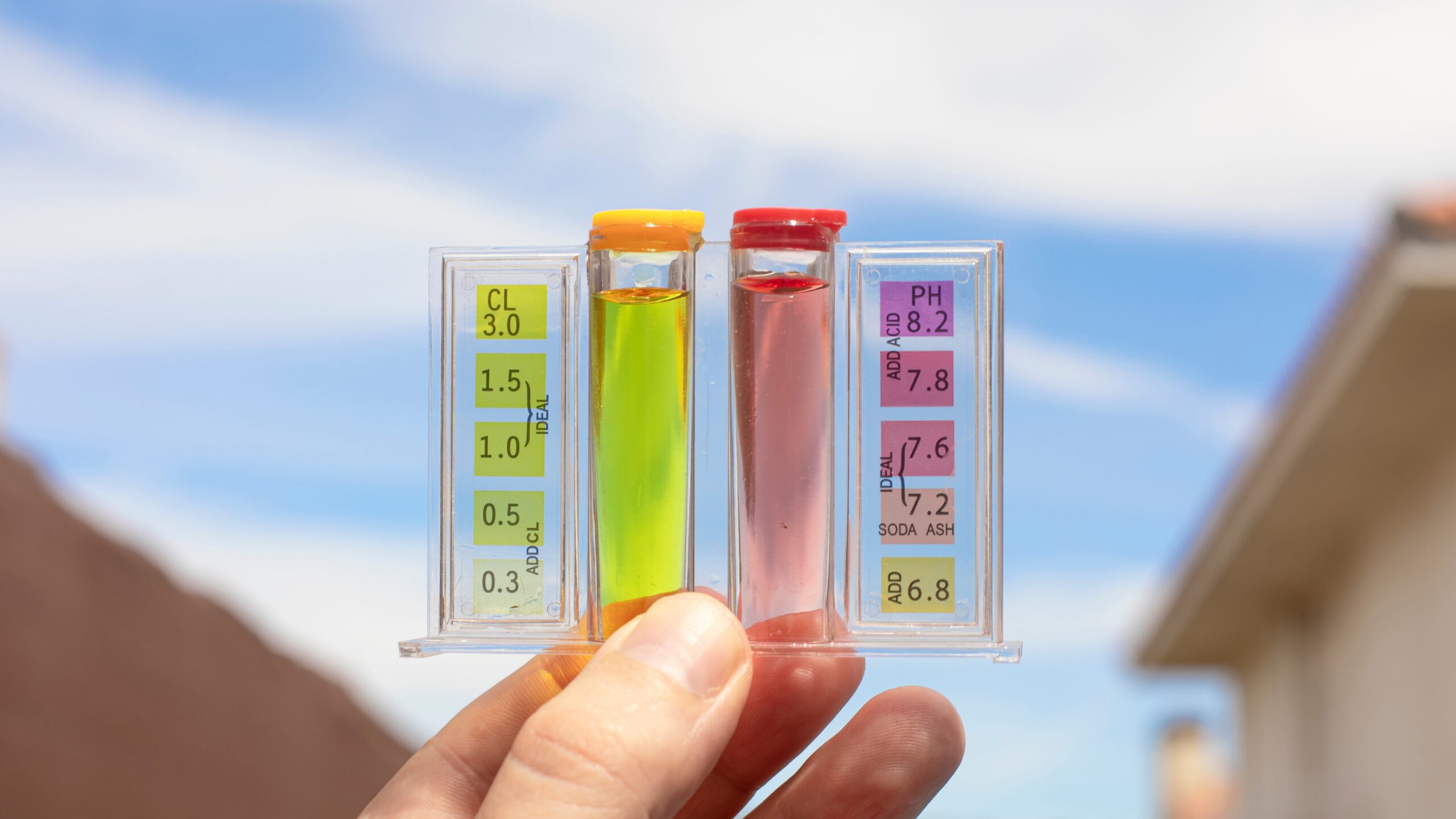Maintaining a clean and healthy swimming pool requires more than just regular cleaning and filtration. Chemical products play a vital role in achieving and maintaining optimal water quality, ensuring a safe and enjoyable swimming experience. In this article, we will explore the essential chemical products used in pool maintenance and their importance in keeping your pool water balanced, sanitized, and clear.
1. Chlorine:
Chlorine is perhaps the most well-known and widely used chemical in pool maintenance. It acts as a powerful sanitizer, effectively killing bacteria, viruses, and other harmful microorganisms in the water. Chlorine also helps control algae growth, preventing the water from turning green and cloudy. It is available in various forms, such as tablets, granules, or liquid, and is typically added to the pool on a regular basis to maintain a consistent chlorine residual.
2. pH Adjusters:
The pH level of your pool water is crucial for swimmer comfort and the effectiveness of other chemical treatments. pH adjusters, such as pH increasers (sodium carbonate or soda ash) and pH reducers (sodium bisulfate or muriatic acid), are used to balance the acidity or alkalinity of the water. Maintaining the pH within the recommended range (7.2-7.6) helps optimize chlorine effectiveness and prevents problems like eye and skin irritation.
3. Algaecides:
Despite proper chlorine levels, algae can still find a way to thrive in your pool. Algaecides are chemical treatments designed to prevent and eliminate algae growth. They work by disrupting the cellular structure of algae, inhibiting their ability to reproduce and spread. Algaecides are particularly useful in preventing the formation of green or black algae, which can be challenging to remove once established.
4. Shock Treatments:
Regular shock treatments are an essential part of pool maintenance. Shocking the pool involves adding a high dose of chlorine to quickly eliminate contaminants and restore water clarity. Shock treatments oxidize organic matter, such as sweat, sunscreen, and bacteria, that can build up over time. This process helps maintain optimal water quality and prevents issues like cloudy water and unpleasant odors.
5. Stabilizers:
Also known as cyanuric acid, stabilizers are used to protect chlorine from being rapidly degraded by sunlight. They form a protective shield around chlorine molecules, preventing them from dissipating too quickly. Stabilizers help maintain a stable chlorine residual in outdoor pools exposed to sunlight, ensuring effective sanitization and reducing the need for frequent chlorine additions.
6. Calcium Hardness Adjusters:
Calcium hardness refers to the concentration of dissolved calcium in pool water. Proper calcium hardness levels (usually between 200-400 ppm) are essential for preserving the pool’s surfaces and equipment. Calcium hardness adjusters, such as calcium chloride, are used to increase or decrease calcium levels as needed, preventing issues like scale formation or corrosive water.
Conclusion:
Chemical products are essential tools in maintaining a clean, safe, and inviting swimming pool. Chlorine, pH adjusters, algaecides, shock treatments, stabilizers, and calcium hardness adjusters work together to balance water chemistry, kill harmful microorganisms, prevent algae growth, and ensure optimal water clarity. Consulting with a pool professional can help you determine the right chemical products and dosages for your specific pool needs. By using these chemical products effectively, you can enjoy a sparkling and healthy pool that provides endless hours of swimming enjoyment.





